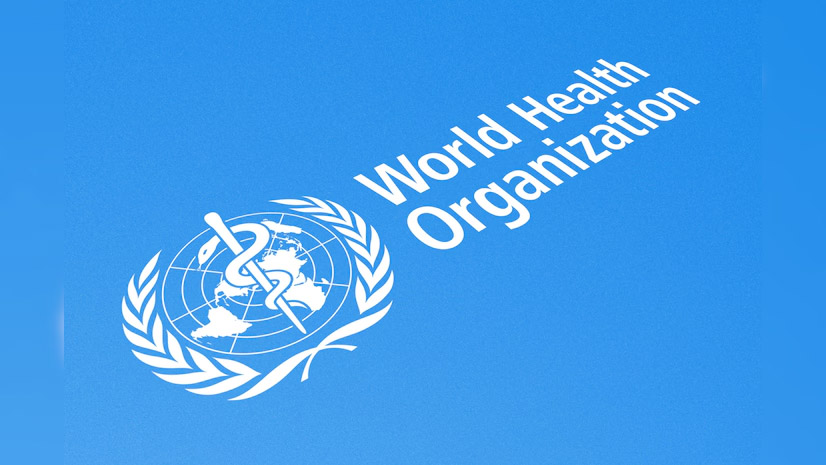GENEVA, Feb 3: During a recent closed-door meeting with diplomats, the head of the World Health Organization (WHO) urged global leaders to encourage Washington to reverse President Donald Trump’s decision to withdraw from the UN health agency. He emphasized that the U.S. risks losing access to vital information regarding global disease outbreaks.
Countries also expressed concerns during a key budget discussion last Wednesday about how WHO plans to manage the potential loss of its largest donor. German envoy Bjorn Kummel remarked, “The roof is on fire, and we need to stop the fire as soon as possible.”
For the 2024-2025 period, the U.S. is expected to contribute approximately $988 million to WHO, accounting for about 14% of the organization’s total budget of $6.9 billion.
Documents from the meeting revealed that WHO’s health emergencies program heavily relies on U.S. funding, with more than 80% of the “readiness functions” in WHO’s European office depending on the $154 million contributed by the U.S.
According to the documents, U.S. funding “anchors many of WHO’s large-scale emergency operations,” covering up to 40%, putting responses to crises in areas such as the Middle East, Ukraine, and Sudan at risk, as well as impacting polio eradication and HIV programs.
The U.S. also finances 95% of WHO’s tuberculosis initiatives in Europe, along with over 60% of related efforts in Africa and the Western Pacific, as stated in the report.
In a separate private meeting regarding the impact of the U.S. withdrawal, WHO finance director George Kyriacou warned that, at the current spending rate, the organization would find itself in a precarious cash flow situation in the first half of 2026. He stated they cannot maintain the current spending pace, based on a recording obtained by the AP.
Since Trump’s executive order, WHO has sought to withdraw funds from the U.S. for past expenses, but most requests have been denied, according to Kyriacou.
Furthermore, the U.S. has yet to finalize its 2024 contributions to WHO, plunging the agency into a financial deficit.
WHO’s head aims to reinstate U.S. participation.
Last week, officials at the U.S. Centers for Disease Control and Prevention were directed to cease collaboration with WHO immediately.
WHO Director-General Tedros Adhanom Ghebreyesus informed budget meeting participants that the agency continues to share some data with U.S. scientists, although the specifics remain unclear. “We continue to provide them information because they need it,” Tedros stated, encouraging member countries to reach out to U.S. officials. “We would appreciate it if you could continue to advocate for them to reconsider.”
Currently, WHO is addressing multiple health crises, including the outbreaks of Marburg virus in Tanzania, Ebola in Uganda, and mpox in the Congo.
Tedros countered Trump’s three cited reasons for leaving WHO in the executive order signed on January 20, asserting that the agency had alerted the world to the risks of the coronavirus as early as January 2020 and has since implemented numerous reforms, including broadening its donor base.
He argued that the U.S. withdrawal is about more than just financial contributions, as it creates a gap in critical health information and outbreak data that the U.S. will need going forward. “Reintegrating the U.S. will be essential,” he told attendees. “And all of you can play a part in that.”
Kummel, a senior health advisor in Germany’s health ministry, characterized the U.S. departure as “the most extensive crisis WHO has faced in decades,” questioning what essential functions might collapse without American funding. Officials from countries such as Bangladesh and France raised inquiries regarding WHO’s plans to mitigate the loss of U.S. funding and which health programs would face cuts as a consequence.
The AP acquired an internal document suggesting various options, including potentially halving the budgets of every major department or office by the year’s end.
WHO has refrained from commenting on whether Tedros privately requested countries to advocate for the agency.
Some experts believe that while the U.S. exit poses a significant crisis, it might also present an opportunity to reform global public health systems. According to Matthew Kavanagh, director of Georgetown University’s Center for Global Health Policy and Politics, less than 1% of the U.S. health budget is allocated to WHO, yet the U.S. derives substantial benefits from this partnership, including crucial intelligence on global disease epidemics and access to virus samples for vaccine development.
Kavanagh noted that WHO is “massively underfunded” and described contributions from wealthier nations as “peanuts.”
WHO emergencies chief Dr. Michael Ryan remarked during last week’s meeting that while the U.S. exit is “terrible,” member states possess “tremendous capacity to fill in those gaps.” Ryan warned, “The U.S. is severing ties with a community of nations.”
Kavanagh expressed skepticism that the U.S. could replicate WHO’s ability to gather essential information on emerging health threats globally and warned that the withdrawal would “absolutely lead to worse health outcomes for Americans.” He added, “How much worse remains to be seen.” (AP)


Leave a Reply